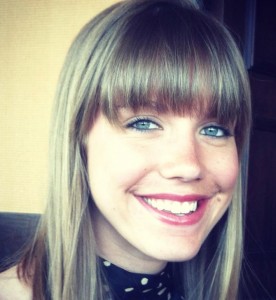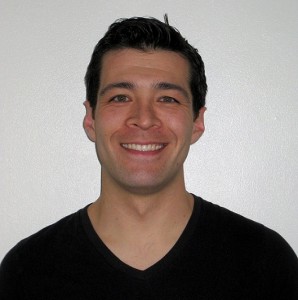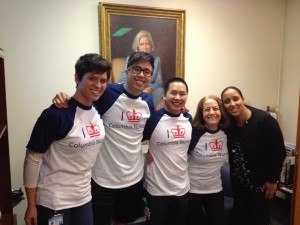
Left to right: ETP student ambassadors Anna Szarnicki, Mark Mariano, and Maxwell Tom with Judy Honig, associate dean of student affairs; and Judy Wolfe, director of admissions and financial aid
The moment you’ve been waiting for, Visiting day is in 24 HOURS! I remember it like it was yesterday. Has it already been a year since I had those butterflies, thinking, “I finally made it! I WAS ACCEPTED! NOW HOW DOES THE SUBWAY SYSTEM WORK? What do I wear? What questions should I ask?” I remember how hungry I was for any and every bit of information that either students, faculty, or alumni could throw at me. I was a bit overwhelmed, and had so many questions! Nervous, Concerned, So much uncertainty!
We all have felt that, and we’re here to help you! Hopefully this blog will ease some anxiety and answer some questions that have been lingering. My advice? Go into tomorrow with a fresh cup of coffee, lots of questions, and remember YOU WERE ACCEPTED FOR A REASON!
-Maxwell Tom, ETP ’14, PNP Pediatric Oncology Candidate, Visiting Day Ambassador
CURRENT STUDENTS’ ANSWERS TO SOME OF YOUR BURNING QUESTIONS ABOUT BEING A COLUMBIA NURSING STUDENT:
Being from Sunny California, has it been a big adjustment moving to NYC?
New York life? Is it a big adjustment? Uh? yes. Of course it is. I picked up and moved 3,000 miles across the country from the only state I had ever lived in, to one of the most infamous cities in the world. There were expected difficulties that newcomers to New York are usually well aware of. I had to adjust to buying clothes fit for the arctic tundra. I had to adjust to getting cozy with strangers on the subway. I even had to adjust to paying inconceivable amounts of money to live in a room six inches wider than my bed. But I also had to adjust to the magic of the city, the reason why 1.6 million people deal with the cold winters, germ ridden subways and high prices. I had to adjust to how beautiful sunsets are from any roof in the city. I had to adjust to seeing Jennifer Aniston around my neighborhood filming movies. And I had to adjust to the infectious energy of the iconic island. So, yes. Big adjustment.
-Katie Reeves, ETP ’14, Psychiatric-Mental Health NP Candidate, Visiting Day Ambassador
What’s the hardest academic part of ETP and how do you deal with it?
Some of us ETPers are not coming straight through from college and may be many years removed from formal education. The hardest part academically was readjusting to the student lifestyle: sacrificing time on the weekends to study and creating new study habits. However, your peers are in the same boat, so group studying was helpful for readjusting socially to being a student. I would recommend managing your time in a planner or calendar because your weeks are full of classes, labs, etc. and it’s helpful to know what to expect each day. I would also recommend taking time to do things to de-stress like go outside, utilize the gym or sight-see in beautiful NYC.
-Emily Owen, ETP ’14, PNP Candidate, Visiting Day Ambassador
What is one thing about the Columbia Nursing program that you didn’t anticipate before starting?
Before I started this program, I was very confident of my path in nursing. Little did I know, each specialty rotation would shake that confidence just a little bit. I didn’t anticipate how much I would fall in love with them all! Each experience was even better than the last! From Pediatrics to OB/Women’s Health, I found myself totally head over heels in love with every aspect of nursing! While I’m still confident of my path, I’ve already started brainstorming about how I can incorporate other specialties, such as Mental Health and Community Health, into my future practice.
-Kent Haina, ETP ’14, CRNA Candidate, Visiting Day Ambassador
As a Master’s student Looking back, can you give the future ETP-ers your #1 advice? What’s the BIGGEST difference between ETP and the Master’s portion of the Columbia Nursing experience?
Learn as much as you can during physical assessment lecture and lab over your first summer at Columbia Nursing, it will be a terrific foundation. The biggest difference between the Master’s program and the ETP program is that you are more likely to be working outside of class/clinical and have to juggle your time better. Your time spent in clinical is exciting! You are expected to not only take health histories and perform physical assessments, but also plan for the care of the patient.
-Michelle Conklin, ETP ’13, FNP Candidate
How do you feel about the experience?
My advice to incoming ETP-ers, is that if you are moving from another location, especially if you have never lived in New York City before, start planning your housing early. New York City apartment hunting and leasing is a squirrelly and scary beast that can work you over if you are not prepared. If you’ve never lived in the city and want to live off campus, do research on things like how to not get scammed by real estate agents, how to do a bed bug history on buildings you might live in, how loud is that street at night, do they routinely spray for roaches, all those lovely things that might not be on your radar.
Ask former ETP-ers about good apartment buildings and brokers. Better yet, consider living on campus the first semester, if not the first year. You will be on campus all the time anyway. It saves you subway money. Nice security staff greet you every time you come home. Your packages are held in a safe place until you pick them up – no standing in obscenely long post office lines or tracking down lost packages. Laundry is in your building. Beds and desks and internet are provided. And it offers you a chance to scope out the city and decide where you might want to live. The housing options aren’t perfect, but the Towers and 154 Haven are comfortable. If you are sensitive to traffic noise, be sure to ask for a room that is not on the river side (Henry Hudson traffic is loud). I’m in my 30s, and didn’t intend or want to live on campus in the beginning, but it ended up being a saving grace. Moving to NYC is overwhelming enough. You want a comfortable place to land and sleep after the long days you’ll have!
The biggest difference between ETP and Master’s for me (and several of my classmates) has been the feeling of responsibility that goes with the broader scope of practice. It’s something that I knew in my mind, but did not really “get” until I started with clinical rotations. To diagnose, manage, and treat – to be responsible and held liable for someone’s well being – is no small thing. It is a subtle and peripheral knowledge that becomes more present and real as the year goes along. Although the class load lightens a bit, the pressure to retain the information feels greater, along with knowing about health care systems, insurance, EMRs, documentation, licensing, etc. No one feels ready at the end of it, from what I hear. Graduation feels like the edge of a cliff. And yet we all will be ready. There’s only so much we can learn in school. The real learning takes place in practice, making mistakes, and learning from patients.
-Isabel Washburn, ETP ’13, WHNP Candidate
From the Financial Aid Office…
1.On average, how long does it take your students to pay off loans for the entire program?
Most students choose the standard repayment option of 10 years with a fixed payment for federal loans. Repayment options vary based on lenders with private loan,s but 10 years is the standard.
Lastly, One piece of advice for surviving visiting day…
I recommend that applicants use Visiting Day as a pre-orientation. Take this time to meet your future professors, get to know future mentors and colleagues (our amazing ambassadors), start building relationships with fellow ETPs, make new friends! Most importantly, ASK questions, everybody at Visiting Day is there to answer them or if they don’t have the answer will help you find someone who can.
-Judy Wolfe, MsED, director of Admissions and Financial Aid
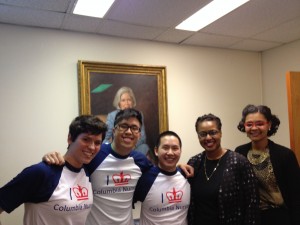
Come Say Hi to the Financial Aid Office!




 Posted by Maxwell Tom
Posted by Maxwell Tom
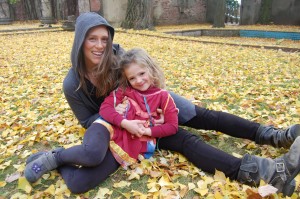
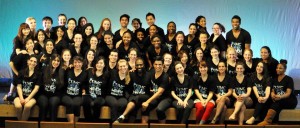
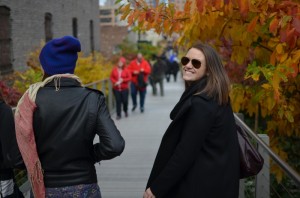 Good advice is often generalized from personal experience. I was told numerous times that choosing a specialty is next to impossible before actually spending time on various units. I have to admit that I essentially blew this off thinking that I knew exactly what I wanted to do. I loved kids. Pediatrics was “my thing” and my allegiance to the specialty was unwavering. Columbia Nursing’s flexible policy on switching specialties was unique and wonderful for students that were still unsure of their passions, but irrelevant to my situation.
Good advice is often generalized from personal experience. I was told numerous times that choosing a specialty is next to impossible before actually spending time on various units. I have to admit that I essentially blew this off thinking that I knew exactly what I wanted to do. I loved kids. Pediatrics was “my thing” and my allegiance to the specialty was unwavering. Columbia Nursing’s flexible policy on switching specialties was unique and wonderful for students that were still unsure of their passions, but irrelevant to my situation.

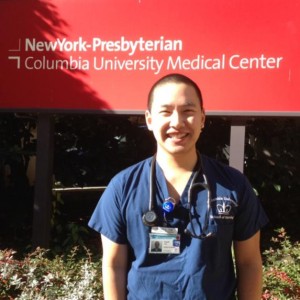
 looking for apartments in February for May or June start leases, be prepared to be the laughing stock of the agency. Housing in NYC is in crazy high demand and everything is done at the last minute. For May 1st or May 15th leases, plan to look for an apartment in mid April. Also – do your research on what you have to prepare in advance. As a student, you will need proof of an acceptance and a guarantor who makes a boatload of money to back you up (note: it doesn’t have to be a family member). Or good recs from previous landlords. Be ready to share things with your realtor and landlord that you probably don’t share with friends. They need to gain your trust. In the end, it all will workout and you WILL find somewhere to live.
looking for apartments in February for May or June start leases, be prepared to be the laughing stock of the agency. Housing in NYC is in crazy high demand and everything is done at the last minute. For May 1st or May 15th leases, plan to look for an apartment in mid April. Also – do your research on what you have to prepare in advance. As a student, you will need proof of an acceptance and a guarantor who makes a boatload of money to back you up (note: it doesn’t have to be a family member). Or good recs from previous landlords. Be ready to share things with your realtor and landlord that you probably don’t share with friends. They need to gain your trust. In the end, it all will workout and you WILL find somewhere to live.